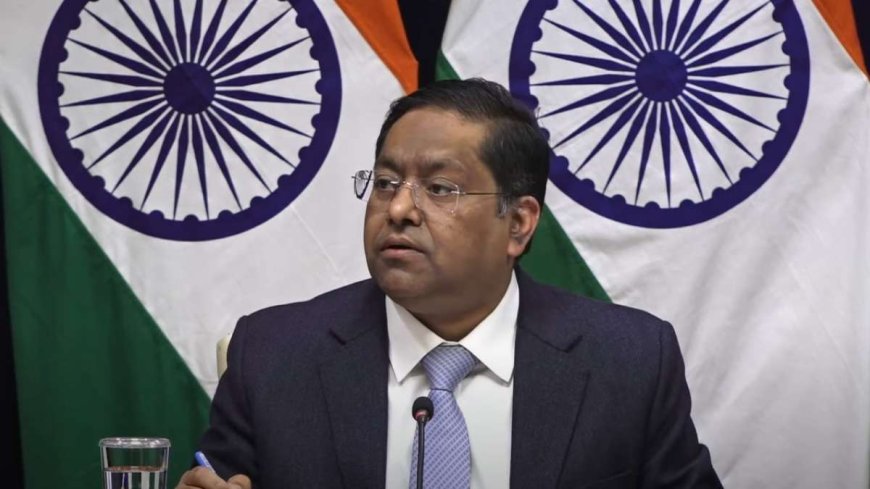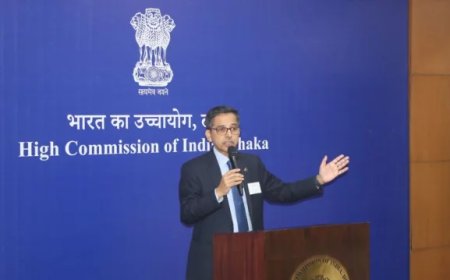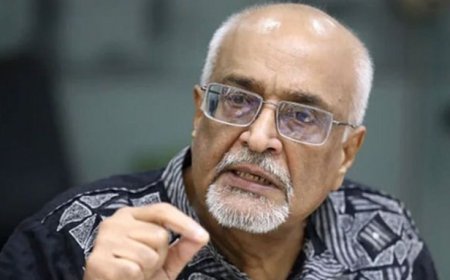"India Issues Protest Following Controversial Remarks on Sheikh Hasina by Aide to Bangladesh Leader Yunus: 'Be Mindful'"
The MEA has criticized statements made by Mahfuj Alam, a key aide to Bangladesh leader Muhammad Yunus, stressing the importance of responsible public discourse. The ministry reiterated India’s commitment to maintaining strong relations with Bangladesh’s interim government.

The Ministry of External Affairs (MEA) on Thursday criticized controversial remarks made by Mahfuj Alam, a key advisor to Nobel laureate Muhammad Yunus, who leads Bangladesh’s interim government, Hindustan Times reported.
In a since-deleted Facebook post, Alam reportedly called on India to acknowledge the uprising that led to Sheikh Hasina’s resignation as Bangladesh’s prime minister, according to PTI.
MEA spokesperson Randhir Jaiswal strongly condemned the remarks and urged Bangladeshi leaders to exercise caution. “We remind all concerned to be mindful of their public comments,” Jaiswal stated during a press briefing.
Highlighting India’s commitment to fostering relations with Bangladesh’s interim government, Jaiswal emphasized the importance of responsible public discourse. “We have lodged a strong protest with the Bangladeshi side. It’s noted that the controversial post has been removed,” he added.
Jaiswal further affirmed India’s support for a democratic, stable, peaceful, progressive, and inclusive Bangladesh. His remarks followed India’s concerns over recent incidents of violence against Hindu minorities and others in Bangladesh, reiterating the interim government’s responsibility to safeguard the lives and liberty of all citizens.
These developments come amid strained relations between the two nations after the interim government, led by Yunus, assumed power. Sheikh Hasina resigned following widespread protests against reservations in government jobs. After fleeing the country in August, her residence was reportedly ransacked by mobs.
On December 16, Chief Adviser Muhammad Yunus announced that elections in Bangladesh could take place between late 2025 and early 2026, contingent on the implementation of key reforms.
What's Your Reaction?





















































































